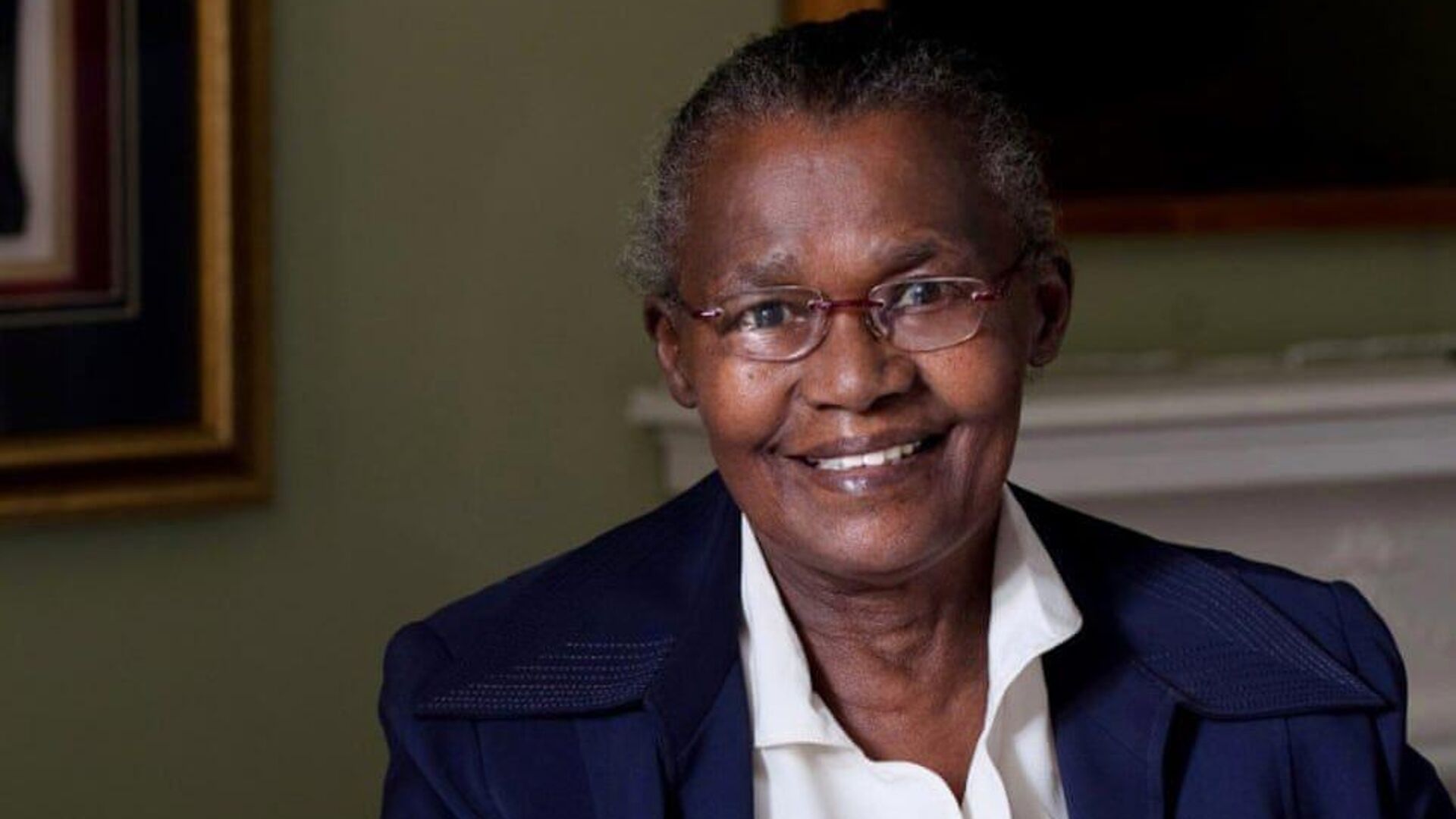https://en.sputniknews.africa/20231103/remembering-lauretta-ngcobo-a-brilliant-voice-in-african-womens-literature-1063282136.html
Remembering Lauretta Ngcobo: A Brilliant Voice in African Women's Literature
Remembering Lauretta Ngcobo: A Brilliant Voice in African Women's Literature
Sputnik Africa
African women's literature plays a prominent, and vital role in the global literature landscape, enriching history with its diverse, and vibrant contributions... 03.11.2023, Sputnik Africa
2023-11-03T16:15+0100
2023-11-03T16:15+0100
2023-11-03T16:15+0100
south africa
britain
sub-saharan africa
southern africa
women
literature
art
apartheid
anti-apartheid struggle
https://cdn1.img.sputniknews.africa/img/07e7/0b/03/1063285019_0:12:965:555_1920x0_80_0_0_ea2208fbca5df47f919f448faaa59f21.jpg
Numerous black women writers from Africa or of African heritage have had a profound impact on the realm of literature, shedding light on the complexities of the human condition from their unique perspectives, and experiences. Among these luminaries is Lauretta Ngcobo, a South African novelist, and essayist whose life and work have left an indelible mark on African and world literature.Life & StrugglesBorn on September 13, 1931 in Ixopo, in the South African province of KwaZulu-Natal, Ngcobo grew up to become the first woman from her area to study at the University of Fort Hare. In 1956, she participated in the Women's Anti-Pass March, protesting racial segregation under the apartheid regime, and was one of the main speakers. In 1957, Ngcobo married Abednego Bhekabantu Ngcobo, a founder and member of the executive of the Pan Africanist Congress, which broke away from the African National Congress (ANC). Her husband and the father of her two children, Ngcobo was sentenced to two years in prison in 1961 under South Africa's white minority government's Suppression of Communism Act.Threatened with arrest for her political activities and affiliations, the future novelist fled the country in 1963 with her two young children, and moved to Swaziland, then Zambia, and finally England, where she worked for 25 years as a primary school teacher. She returned to South Africa in 1994 after apartheid was abolished, and the African National Congress led by Nelson Mandela came to power.Literary ContributionsNgcobo's writing is characterized by vivid descriptions and emotional depth that draw readers into the world of her characters. Her portrayal of women is particularly noteworthy, highlighting their strength, and resilience in the face of adversity. Lauretta Ngcobo is best known for her novel And They Didn't Die (1990), which is set in 1950s South Africa. The novel portrays the struggle of black women living in South Africa during the apartheid era.And They Didn't Die is a powerful testament to the resilience, and determination of African women. The novel's protagonist, Jezile, is a young woman who must navigate the harsh realities of apartheid while trying to keep her family together. Jezile's struggles mirror those of many African women during this period, making the novel a poignant exploration of gender, race, and class in South Africa.In addition to her fiction, Ngcobo has made significant contributions as an editor. She edited Let It Be Told: Essays by Black Women Writers in Britain, published in 1987. This engaging and dynamic collection of essays by ten black women writers in Britain includes personal stories, glimpses of history, discussions of the intentions, and obligations of writing itself, and a powerful sense of resistance in the face of British racism.Ngcobo has also edited Prodigal Daughters: Stories of South African Women in Exile, published in 2012. In this anthology, 18 women tell their deeply personal stories of exile. They relive a past in order to anchor in memory narratives that would surely disappear in a country still struggling to shake off the shackles of racial inequality and oppression.Ngcobo also contributed to children's literature with her book 'Fikile Learns to Like Other People', published in 1994. The book is part of a series designed to appeal to African boys, and girls between the ages of 9 and 15. The story revolves around Fiki, a girl who likes no one and no one likes her. But one day, when Fiki goes on a picnic, something very strange starts to happen.LegacyToday, on the 8th anniversary of her death, we remember Lauretta Ngcobo not only as a novelist, but as a beacon of African women's literature. Her writings continue to inspire and educate, highlighting the struggles, and triumphs of African women.Her legacy serves as a reminder of the power of literature to effect change and give voice to the voiceless.
https://en.sputniknews.africa/20231027/top-10-actors-with-nigerian-roots-in-recent-foreign-movies--tv-series-1063117720.html
south africa
britain
southern africa
Sputnik Africa
feedback@sputniknews.com
+74956456601
MIA „Rossiya Segodnya“
2023
Muhammad Nooh Osman
https://cdn1.img.sputniknews.africa/img/07e7/04/0a/1058467512_0:0:1280:1280_100x100_80_0_0_ec723833bcbfcaed2e21952965ad99e4.jpg
Muhammad Nooh Osman
https://cdn1.img.sputniknews.africa/img/07e7/04/0a/1058467512_0:0:1280:1280_100x100_80_0_0_ec723833bcbfcaed2e21952965ad99e4.jpg
News
en_EN
Sputnik Africa
feedback@sputniknews.com
+74956456601
MIA „Rossiya Segodnya“
Sputnik Africa
feedback@sputniknews.com
+74956456601
MIA „Rossiya Segodnya“
Muhammad Nooh Osman
https://cdn1.img.sputniknews.africa/img/07e7/04/0a/1058467512_0:0:1280:1280_100x100_80_0_0_ec723833bcbfcaed2e21952965ad99e4.jpg
south africa, britain, southern africa, women, literature, art, apartheid, anti-apartheid struggle
south africa, britain, southern africa, women, literature, art, apartheid, anti-apartheid struggle
Remembering Lauretta Ngcobo: A Brilliant Voice in African Women's Literature
Muhammad Nooh Osman
Writer/Editor
African women's literature plays a prominent, and vital role in the global literature landscape, enriching history with its diverse, and vibrant contributions. Through their written works, African women writers have effectively promoted social and cultural transformation.
Numerous black women writers from Africa or of African heritage have had a profound impact on the realm of literature, shedding light on the complexities of the human condition from their unique perspectives, and experiences. Among these luminaries is Lauretta Ngcobo, a South African novelist, and essayist whose life and work have left an indelible mark on African and world literature.
Born on September 13, 1931 in Ixopo, in the South African province of KwaZulu-Natal, Ngcobo grew up to become the first woman from her area to study at the University of Fort Hare. In 1956, she participated in the Women's Anti-Pass March, protesting racial segregation under the apartheid regime, and was one of the main speakers.
In 1957, Ngcobo married Abednego Bhekabantu Ngcobo, a founder and member of the executive of the Pan Africanist Congress, which broke away from the African National Congress (ANC). Her husband and the father of her two children, Ngcobo was sentenced to two years in prison in 1961 under South Africa's white minority government's Suppression of Communism Act.
Threatened with arrest for her political activities and affiliations, the
future novelist fled the country in 1963 with her two young children, and moved to Swaziland, then Zambia, and finally England, where she worked for 25 years as a primary school teacher. She returned to South Africa in 1994 after apartheid was abolished, and the African National Congress led by Nelson Mandela came to power.
Ngcobo's writing is characterized by vivid descriptions and emotional depth that draw readers into the world of her characters. Her portrayal of women is particularly noteworthy, highlighting their strength, and resilience in the face of adversity.
Lauretta Ngcobo is best known for her novel And They Didn't Die (1990), which is set in 1950s South Africa. The novel portrays the struggle of black women living in South Africa during the apartheid era.
And They Didn't Die is a powerful testament to the resilience, and determination of African women. The novel's protagonist, Jezile, is a young woman who must navigate the harsh realities of apartheid while trying to keep her family together. Jezile's struggles mirror those of many African women during this period, making the novel a poignant exploration of gender, race, and class in South Africa.
In addition to her fiction, Ngcobo has made significant contributions as an editor. She edited Let It Be Told: Essays by Black Women Writers in Britain, published in 1987. This engaging and dynamic collection of essays by ten black women writers in Britain includes personal stories, glimpses of history, discussions of the intentions, and obligations of writing itself, and a powerful sense of resistance in the face of British racism.
Ngcobo has also edited Prodigal Daughters: Stories of South African Women in Exile, published in 2012. In this anthology, 18 women tell their deeply personal stories of exile. They relive a past in order to anchor in memory narratives that would surely disappear in a country still struggling to shake off the shackles of racial inequality and oppression.
Ngcobo also contributed to children's literature with her book '
Fikile Learns to Like Other People', published in 1994. The book is part of a series designed to appeal to African boys, and girls between the ages of 9 and 15. The story revolves around Fiki, a girl who likes no one and no one likes her. But one day, when Fiki goes on a picnic,
something very strange starts to happen.
Today, on the 8th anniversary of her death, we remember Lauretta Ngcobo not only as a novelist, but as a beacon of African women's literature. Her writings continue to inspire and educate, highlighting the struggles, and triumphs of African women.
Her legacy serves as a reminder of the power of literature to effect change and give voice to the voiceless.



